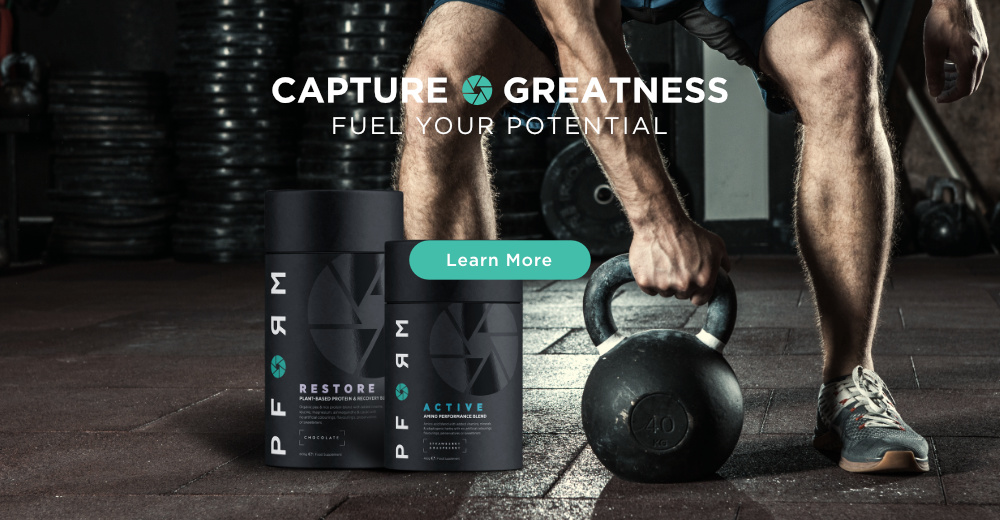
The benefits of the ketogenic diet for the athlete
There is an increasing amount of anecdotal evidence from athletes supporting the ketogenic diet. The purpose of this article is to provide you with an overview of what the current scientific literature says about the athlete and the ketogenic diet.
Enhanced fuel reserves
Body stores of fat provide approximately 40,000 calories versus stores of carbohydrate (liver and muscle glycogen) which provide approximately 2,000 calories. When you are keto adapted/fat adapted/ metabolically flexible (check out Keto adapted versus fat adapted and Pros of the ketogenic diet for more information on this) you are able to effectively access and utilise fat stores which translates into an inbuilt fuel reserve for longer periods of exercising. This becomes hugely beneficial for any kind of long-distance endurance sport and gets rid of the need for gels or breaks to refuel.
Need to knows: studies show that athletes who spend a greater amount of time on the ketogenic diet (> 6 months versus 4 weeks) have a greater capacity to metabolise fat for fuel and can also metabolise fat at higher exercise intensities (1,2). We’ve also seen that post being on the ketogenic diet for > 6 months, athletes adapt to the extent to be able to restore their own glycogen levels to the same levels as athletes on a high carb diet (1).
Tip: if you’re a serious athlete who wants to gain training adaptations from the ketogenic diet, it may be necessary to plan to spend a period of time training in nutritional ketosis to gain the benefits.
Body composition
The ketogenic diet is associated with weight loss, fat loss, and the maintenance of muscle mass in athletes (3). For further detail on the mechanisms behind the weight and fat loss, check out Pros of the ketogenic diet. The capacity to lose fat and maintain muscle is likely to be due to a combination of factors: following a restricted diet, increasing metabolic flexibility and training regime.
Need to knows: training regime and adequate protein remain key for maintaining and/or building muscle.
Tip: if you are using the ketogenic diet for body composition and seeking to lose or gain overall weight, calorie balance still matters. Additionally, some people on the ketogenic diet may underestimate the amount of protein that is required: prioritise knowing and meeting your own protein needs.
Protein sparing effects
Studies show that the ketogenic diet may prevent the breakdown of muscle (4). This may be particularly beneficial for the athlete during periods of higher and longer training loads, where protein breakdown may be a risk.
Need to knows: ketone bodies may be used preferentially by the body over amino acids (the building blocks of protein), therefore preventing protein breakdown. However, we don’t have any hard evidence to show this yet since most studies are in animal models (4).
Tip: prevention of protein breakdown can be aided by supplementation of exogenous ketone bodies or free amino acids pre workout/training.
Effects on strength and power
Studies show athletes training in strength and power (e.g. Cross Fitters) can maintain their performance on the ketogenic diet (5) and some evidence suggests strength and power performance can be improved too (3).
Need to knows: many of these studies are not tightly controlled enough (for example, dietary and training factors) to be able to accurately identify whether it was the ketogenic diet, or the protein intake, or the training regime…..
Tip: to optimise success on the ketogenic diet, give yourself adequate amount of time on the diet to adapt. When you initially begin the ketogenic diet, reduce your training load and then slowly increase it as you become adapted to the diet. Expect your performance to suffer to begin with but you will adapt as time goes on and your performance will improve. The time it will take for you to adapt will depend on you as an individual, your current diet and whether this is something that you are better suited with.
Potential associations
Improved recovery
In animal models, ketone bodies are shown to have effects that reduce damage to the body (anti-inflammatory and increase antioxidant effects) (6,7). Due to high training load or frequency, ketone bodies may assist with any temporary damage to your body (improving the balance of inflammation and antioxidant defences) enhancing the recovery process.
Need to knows: we need experimental studies in people/athletes to support this idea – we haven’t got this yet.
Tip: consider your ratio of fats (omega 3: omega 6). In general, focusing on increasing omega-3 fat sources can be helpful, since we usually don’t get enough in. Examples include, fatty fish (salmon, mackerel, sardines, trout), eggs and walnuts.
Improved gastrointestinal (GI) symptom
Between 20-50% of athletes suffer from GI symptoms (for example an irritable gut, diarrhoea, vomiting etc.) and this tends to increase with the intensity of exercise (8). A potential mechanism involved may be inflammation (9) and therefore due to the reasons stated above, the anti-inflammatory effect of ketone bodies may help to alleviate this.
Another consideration is that athletes on the ketogenic diet avoid the usual carb/fuel loading which alleviate GI distress. Firstly, reduced food intake around the period of exercising results in nothing in the stomach to cause distress. Secondly, many sports gels/fuels are made up of substances which may aggravate the gut and result in irritable bowel syndrome (IBS) like symptoms (10).
Need to knows: this is currently only anecdotal evidence specifically on the improved GI symptoms and experimental studies in animals on inflammation.
Tip: if you are suffering from any GI issues, review what you are eating and when, to begin to identify if there are any patterns.
Drawbacks
Check out the cons of the ketogenic diet to gain a general understanding of the drawbacks of the ketogenic diet. Potential negative implications from the ketogenic diet that particularly apply to the athlete include: low energy availability (LEA), low active thyroid hormone levels, high cholesterol levels, GI issues, electrolyte imbalance / dehydration.
Approximately 22-55% of athletes suffer from LEA (11), which subsequently results in relative energy deficiency in sport (RED-S):‘impaired physiological functioning includes, but is not limited to, impairments of metabolic rate, menstrual function, bone health, immunity, protein synthesis and cardiovascular health’ (12). This affects males as well as females, and common initial symptoms can include: increased occurrence of colds/flu/illness, tiredness/fatigue, frequent stress fractures, reduced sex hormones and irregular/absent menstrual cycles.
Additionally, as an athlete you are at risk of reduced thyroid function due to potential stress (chronic training load / under recovery / life stress) and therefore need to be aware of this in conjunction with the ketogenic diet which may lower your active thyroid hormone levels (reference).
Final words
- Check out: the Cons of the ketogenic diet and also if you’ve got time the Pros of the ketogenic diet.
- Diet personalisation: the “right” modified form of the ketogenic diet has to be personalised to suit your needs and goals. Additionally ensuring optimal protein and energy intake as well as electrolyte balance is key.
- Periodisation: as an athlete your training and energy needs will vary and therefore it will be likely be optimum (for health and performance) to periodise your nutrition and monitor and review your progress.
Related articles
References
- Volek et al. (2016). ‘Metabolic characteristics of keto-adapted ultra-endurance runners”
- Phinney et al. (1983). ‘The human metabolic response to chronic ketosis without caloric restriction: preservation of submaximal exercise capability with reduced carbohydrate oxidation.’
- McSwiney et al. (2017). ‘Keto-adaptation enhances exercise performance and body composition responses to training in endurance athletes’.
- Thomsen et al. (2018). ‘Effects of 3-hydroxybutyrate and free fatty acids on muscle protein kinetics and signalling during LPS-induced inflammation in humans: anticatabolic impact of ketone bodies.’
- Gregory et al. (2017). ‘A low-carbohydrate ketogenic diet combined with 6-weeks of CrossFit training improves body composition and performance.’
- Youm et al. (2015). ‘Ketone body β-hydroxybutyrate blocks the NLRP3 inflammasome-mediated inflammatory disease.’
- Shimazu et al. (2013). ‘Suppression of oxidative stress by β-hydroxybutyrate, an endogenous histone deacetylase inhibitor.’
- Clark and Mach (2016). ‘Exercise-induced stress behaviour, gut-microbiota-brain axis and diet: a systematic review for athletes.’
- Mach and Fuster-Botella (2017). ‘Endurance exercise and the gut microbiota: a review.’
- Duchan et al. (2010). ‘Energy drinks: a review of use and safety for athletes’
- Logue et al. (2020). Low energy availability in athletes 2020: an updated narrative review of prevalence, risk, within-day energy balance, knowledge and impact on sports performance’
- Mountjoy et al. (2018). ‘IOC consensus statement on relative energy deficiency in sport (RED-S): 2018 update.’

















